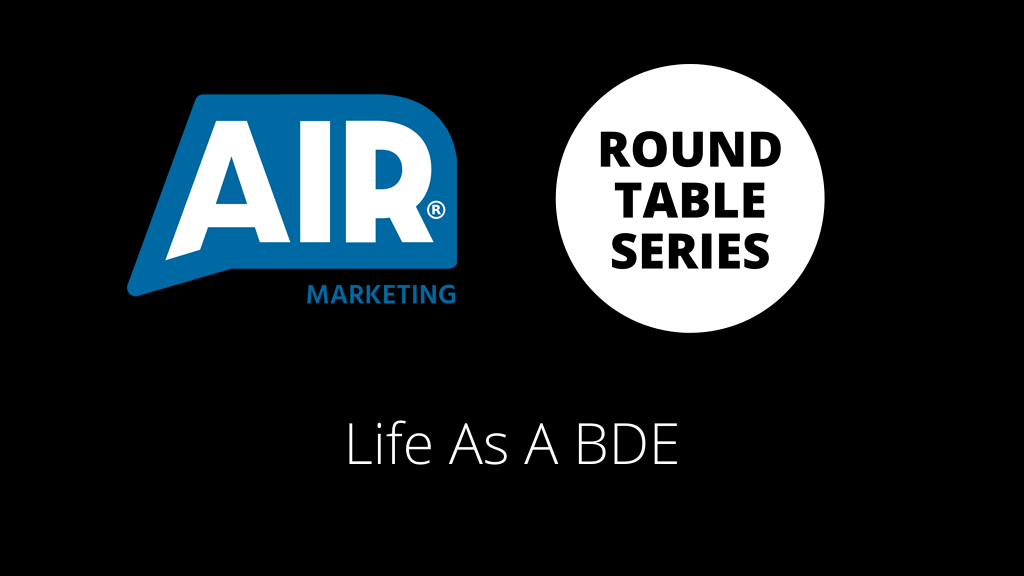Outbound sales remain a vital component of a company’s sales strategy. Or at least it should be. Research conducted in 2019 highlighted that 41.2% of respondents found the humble telephone to be the most effective sales tool at their disposal. Outbound sales drove 55% of leads compared with 27% generated by inbound. That’s a pretty compelling statistic!
But can you supercharge your results further by changing some aspects of your approach, to close any gaps in your outbound sales strategy and delivery plan. With all elements working harmoniously you will see a surge in the quality and quantity of leads in your pipeline.
We’re experienced in helping our clients maximise their outbound sales strategy. In our experience, it takes an initial time-investment, expertise and consistent approach to get your outbound sales engine firing on all cylinders.
Here’s our rundown of the 10 key ways you can optimise outbound and how to bridge the gaps:
- Get your CRM working – Tough questions require honest answers: Is your CRM fit for purpose when it comes to being an outbound sales engine? Can your sales team work quickly but effectively with it? Does it lack the capability to deliver the data insights you need? This is a vital component in your outbound sales process, if your team find your CRM clunky and the UX poor they simply won’t use it. Without proper database management, it’s difficult to optimise campaigns and impossible to build a validated pipeline of valuable leads. This is why you need to get your CRM working for you, it’s the foundation of your campaign’s success.
Many of our clients utilise our custom built CRM which has been specifically developed to optimise our outbound sales engine. We do also work within our clients CRMs when relevant, providing we can see that the platform will give clients a clear view of their data, their prospects and the entire journey throughout the life of a campaign. - Reporting – Do you have access to the reports and insights you need to optimise outbound sales? Reporting should give you as close to a real-time view of a campaign as possible. It should help you quickly pinpoint what’s working and what needs to change. If you’re not in a position to do that, how do you know if your campaign is going well? When using our bespoke CRM, we provide detailed reporting to our clients through our client portal so they can get a speedy pulse-check and a transparent view of progress. Our ongoing reporting uses those insights to adapt and evolve our approach to achieve success.
- Call recordings – These provide a vital insight into how customer conversations are progressing, whether messaging is working or needs review. Do you have access to recordings? If you have, do you have the time to listen to them and do you know what to listen for? Listening back to calls is vital in any campaign, it helps you get a sense of a typical conversations, how prospects are engaging with your messaging and whether or not you need to change your script or approach. We have a thorough review and feedback process to ensure consistent improvement. You’ll never get a lead that the call hasn’t been listened to by one of our team first.
- Call backs – Having an agreed process for how calls are handled and logged ensures that you are efficient with opportunities and your prospect is getting a smooth experience. You need complete visibility of the most recent point of contact to create a seamless journey to sale. It’s worth the time investment of mapping this process out thoroughly and sharing with your team. This comes back to your CRM, does this have the functionality to seamlessly manage this?
- Data tells a story – We use it to find patterns that we can leverage for success, the best of time of day to call, the most successful approach to take with gatekeepers to reach the decision maker expediently plus many more trends can be found from the data. We work with our clients to build that picture and use it to best effect. Again, this is a worthy time investment that will really pay off in the long-term. Ideally, you will have an individual within your team who is able to analyse, process and make recommendations based on the data presented. We know that not every in-house team can have an individual focused on data but making it a priority for your campaign means somebody needs to understand and own this. We have a Data Analyst within our team who is solely focused on optimising client campaigns by utilising data.
- Learning and Development – Continual training and support helps sales teams realise their potential and is proven to enhance performance. Do you have a training plan for your sales team? Do you have the tools or partners who will really add value to this training? Research shows that learning and development can really boost sales team performance, with sales training improving win-rate by 15.4%. This is a huge focus for our team, we invest in our sales teams, championing their professional development and supporting them to learn and grow and deliver stellar work across all client accounts.
- QA (Quality Assurance) matters – A quality prospect experience, smooths the path to conversions. By optimising your QA processes you’re ensuring a better experience for every future prospect, protecting your brand and building insights to optimise future conversations and future campaigns. We work closely with clients to assure quality of all sales conversation and follow-up process. We ensure their brand is represented in line with their tone and values and their outbound campaigns actively build brand and reputation in new markets.
- Scripts that help conversation flow – In our experience, scripts need to rigid enough to effectively communicate the brand and pitch but not so rigid that they stem the flow conversation. Try to be professional but conversational in tone, if you wouldn’t naturally talk a certain way, don’t put it in your script. Prospects are people and will respond far better to a thought-provoking and engaging chat than a list of quick-fire discovery questions. We create scripts for our clients that communicate their brand and service and build the relationships that lead to future opportunities.
- Objection handling – How you handle objections is a valuable brand building activity. Doing it well takes training and experience. If you’ve never tackled it before, try to map out some common challenges and listen to calls to find specific ones; then work on your responses and agree your approach so everyone in your sales team is on the same page. For us, it’s woven into our FAQs and provides another opportunity to progress a conversation towards a sale.
- Competitor analysis – We’re keen advocates of competitor analysis because by looking at what your competitors do well, helps you contextualize your own value proposition, strengths and weaknesses. When refining and honing your messages to the market, this information is absolute gold. Getting started doesn’t have to be onerous, take a couple of hours to start putting together your insights, even something high-level can prove a useful document, but make sure you use it to inform your campaign strategy. If you’re not sure where to take it next, we can help. We use our clients’ insights from competitor analysis to develop a strategy that accelerates their success and helps them differentiate themselves in a crowded market.
Developing and honing your outbound sales approach is no easy feat and when you’re busy with the daily running of your business. It can be tough to find the time, headspace and the right group of people in-house to make sure your efforts are coordinated, consistent and optimised for results. This is where we can help you bridge the gap. We’re experts in outsourced sales, helping startups to household names to achieve their sales goals and reach new markets.
If you want to supercharge your outbound strategy and accelerate your sales success going into 2021, get in touch today and we’ll guide you through the process: call 0333 250 3217 or email contact@air-marketing.co.uk.








